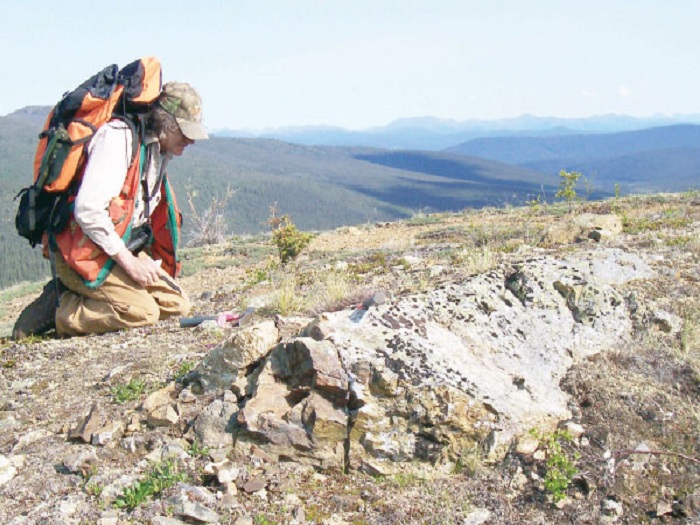The high cost of exploratory drilling in Iran

In order to be able to improve our position from the 15th rank, we need to expand our exploration, but the important thing is that, according to experts, the capacity of surface exploration is running out, and we need to go deeper, which requires machinery and up-to-date knowledge.
According to the International Exhibition of Iranian Stone, Iran is ranked tenth in the world in terms of diversity with sixty-eight types of minerals, and by exploring and identifying about sixty billion tons of mineral reserves, of which about forty billion are definite and the rest possible, In terms of reserves, it is ranked 15th in the world.
In order to be able to improve our position from the 15th rank, we need to expand our explorations, but the important thing is that, according to experts, the capacity of surface exploration is running out, and we need to go deeper, which requires machinery and up-to-date knowledge. .
Threat to exploration
Sayed Sohrab Hosseini, a member of the board of directors of the Non-Oil Drilling Union, said: "The most documented exploratory information that leads to the evaluation of a mineral reserve and is reliable for production design and planning is the data obtained from exploratory drilling results and brains."
Hosseini continued: "Any exploratory speculation that leads to the discovery of minerals, indicates the presence of hundreds and even thousands of tons of minerals; For example, the leading countries in the mining sector have at least one to six million meters of drilling per year in their mining planning, which shows the importance of exploratory drilling.
A member of the board of directors of the Non-Oil Drilling Union pointed to the problems in the field of drilling and said that the number of exploratory drilling digs in our country is not high.
He said that the high cost of each meter of exploratory drilling is one of the biggest challenges ahead, which has reduced the amount of drilling and the suffering of activists in the field of exploratory drilling in the country.
The deputy chairman of the Industry and Mining Commission of the Tehran Chamber of Commerce's Young Entrepreneurs Association noted that the exploration drilling operation is directly related to about 70 percent of the currency price, as in-well equipment including drills, drill pipes and other items are all imported.
He went on to say that the average cost of exploratory drilling, regardless of the specific conditions in the world, is about $ 100. "Drilling is very costly due to the use of diamond drills, anti-wear equipment and special machinery," he said. They have this equipment. Some countries have resorted to the use of ultrasonic in drilling machinery and equipment to increase efficiency and productivity.
Hosseini continued: "In our country, producers have resorted to the production of some in-house tools and drilling machines and have successful experiences in this field, but more measures must be taken."
"Unfortunately, we have not defined a significant amount of drilling projects in the country," he said.
The importance of underground exploration
Mohammad Baqer Dori, deputy director of exploration at the National Geological and Mineral Exploration Organization, said in response to a question about what we should do this year to explore: Is.
The Deputy Minister of Geological Survey and Mineral Exploration continued: "This year, as specified in the plans, most of our focus is on the areas where we have done aerial geophysical work, and now we are going to do ground operations." In any area where there is mineral anomalies, we will definitely do ground geophysics and then drilling. We are also going to continue new aerial geophysics in other areas.
Pointing to the importance of deep exploration in the country, Dari said: "What should be considered the most and is known as the weak point of exploration in our country is the need to work on controversial and deep exploration." Since we are still in the early stages of this process compared to other countries, the general policy of the Geological Survey this year is to deepen the exploration.
He said: "We will advance this by using the knowledge of aerial geophysics and the processing of data from Earth sciences, including geology, geochemistry and satellite."
"We are preparing some areas where exploration is possible, where we will first take the initial field measures, and if necessary, we will often start ground geophysical work," said the deputy director of exploration at the country's Geological and Mineral Exploration Organization.
Referring to the geochemical actions of the Geological Survey, Dori said: "We have moved towards geochemical exploration for some elements that are non-conducting." This has been done in most parts of the country. For some sheets of one hundred thousandth, geochemical measures and analyzes have been performed in four elements, but in some elements, such as gold, no action has been taken yet.
In response to a question about how you predict the state of exploration this year, the deputy director of exploration at the country's Geological and Mineral Exploration Organization said: "Given the fields of work provided and the harvests we have done in several provinces in recent years, we can add some Introduce storage.
In the end, he pointed to other problems in the field of exploration: there are issues such as local opposition, natural resources and the environment that need to be addressed. Although we respect natural resources, issues should not be intertwined in such a way that we cannot advance exploration work.










